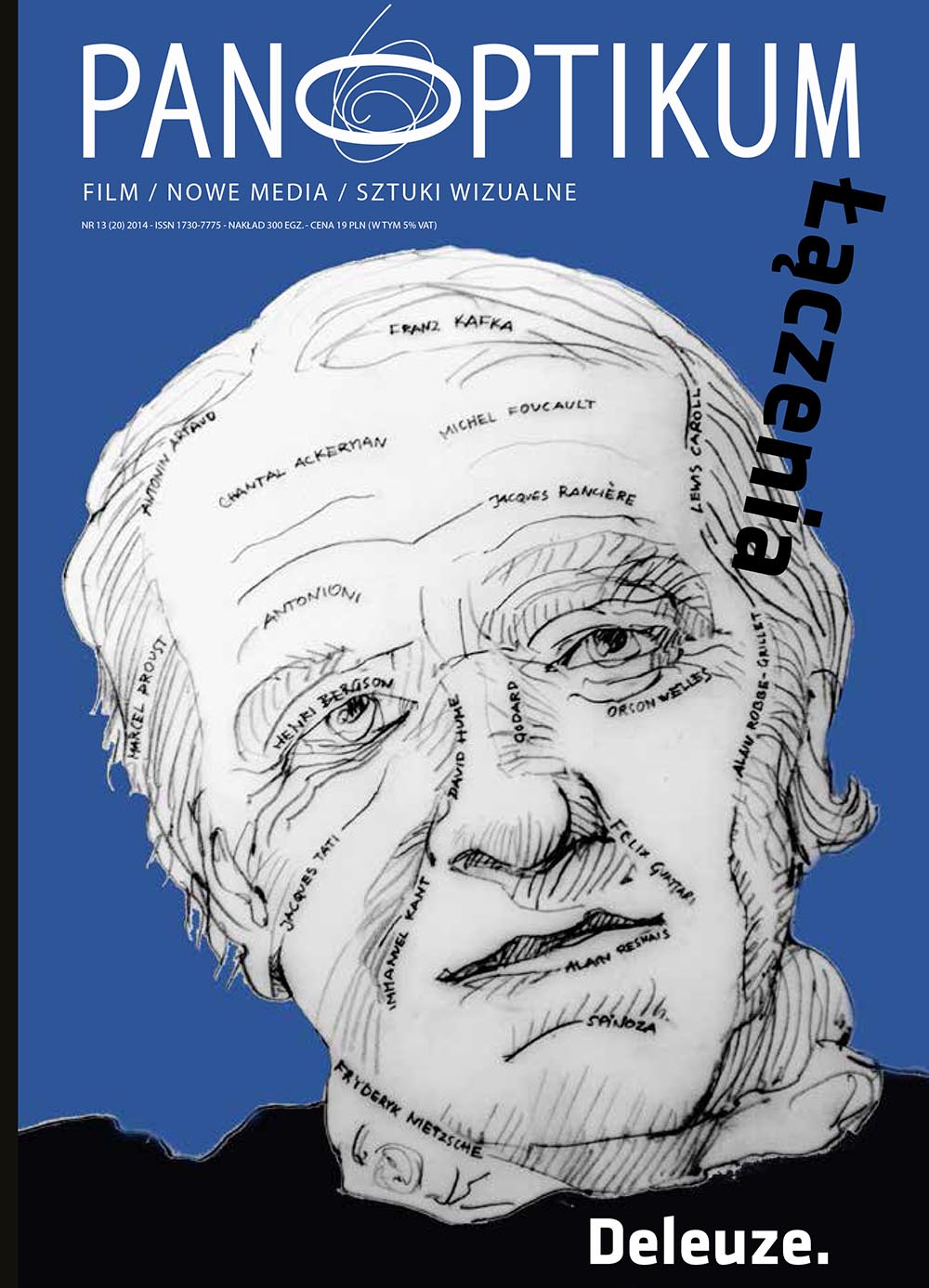Kino jako machina wyobraźni – teoria kina Gillesa Deleuze’a w kontekście teorii wyobraźni Immanuela Kanta
Abstrakt
The aim of this paper is to show that the film theory of Gilles Deleuze could be thought of as a new theory of imagination. Cinema is a space of imaginative work that is not limited by subject, or transcendental or cognitive requirements. Cinematographic movement and time connect, diversify and open the images for the duration. This peculiar imaginative move happens firstly by framing, which apprehends the diversity of the view. Secondly, by moving shots that show, through synthetic movement, the changes of aspects and sets. Thirdly, through montage, which creates a whole in the temporal ordering of images and also opens these images to other images, to what is beyond them and to their entirety. This move produces the represented world in the same way as Kantian imagination produces content according to the empirical experience, to cause-effect and sensory-motor relations. The movement-image appears, in which the movement determines the time ordered in sequence, as in the case of the inner sense. This allows the tracking of the history of actions, perceptions and feelings. Cinematographic movement can, however, go beyond the schema of actions and the linear order of time to simultaneity and ambiguity. The optical and sound images (the time-images) create mental states, affects and also the experience the beauty and the sublime.

 Uniwersyteckie Czasopisma Naukowe
Uniwersyteckie Czasopisma Naukowe





